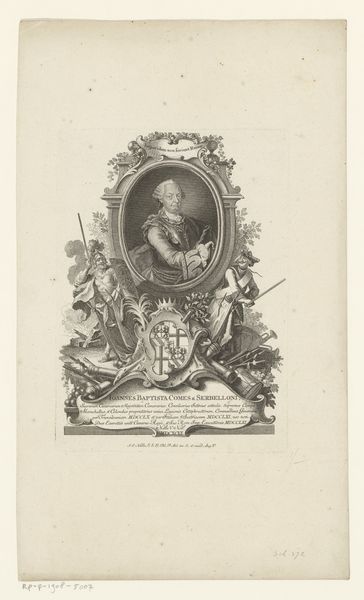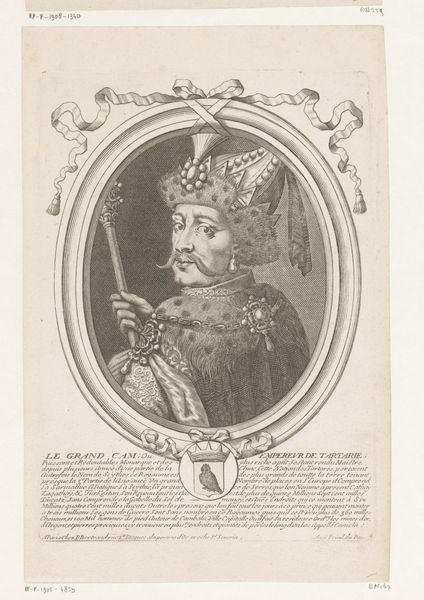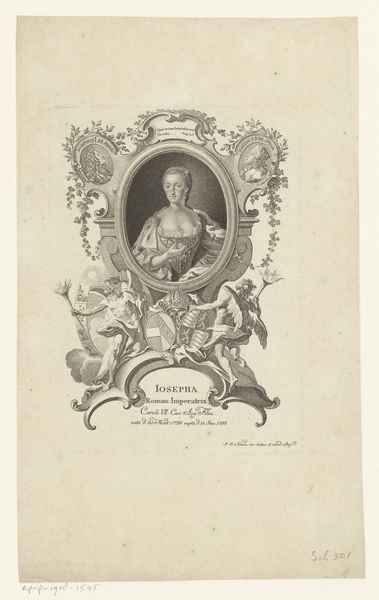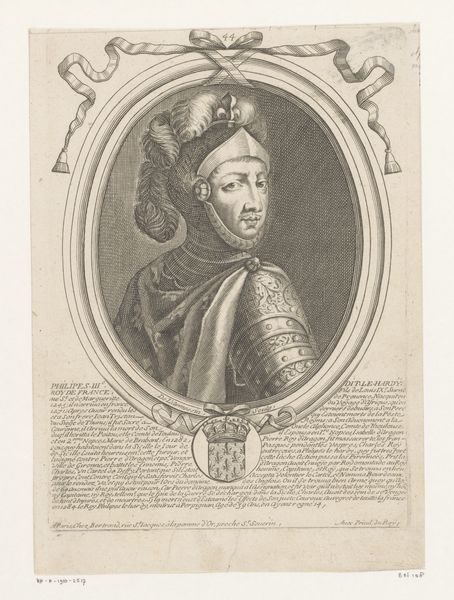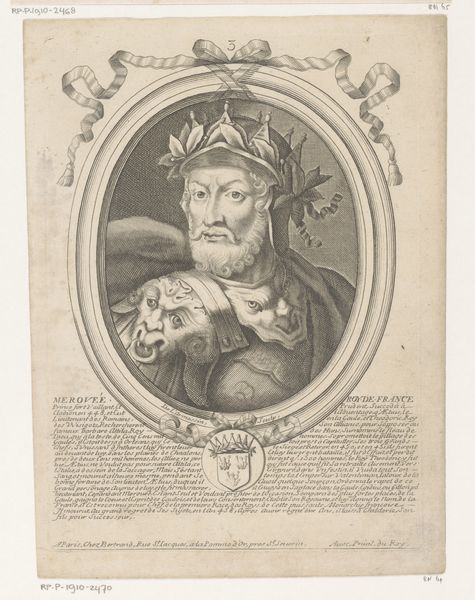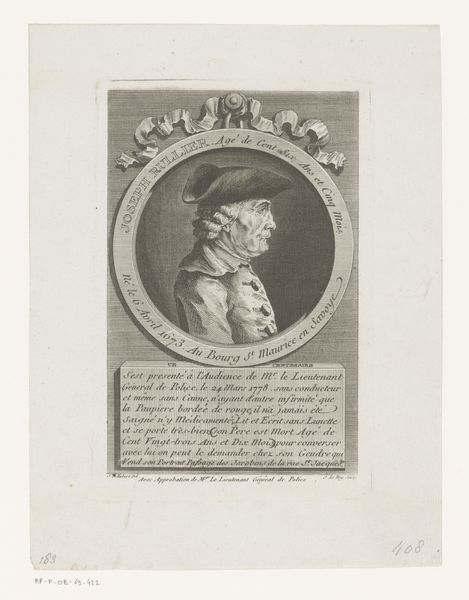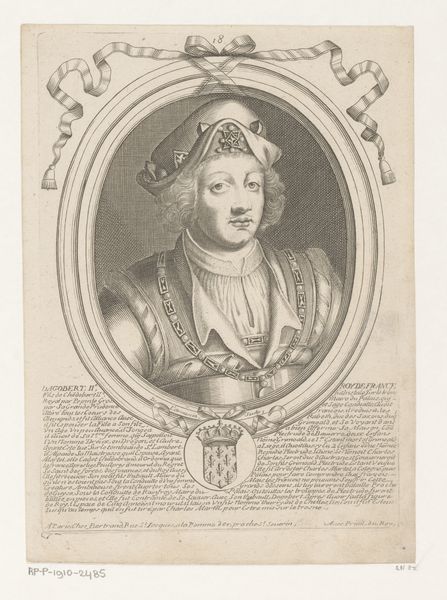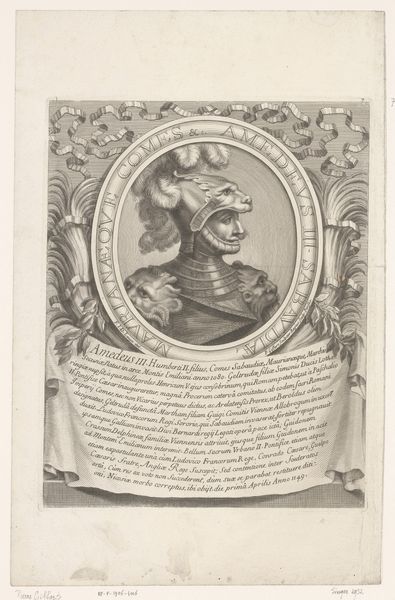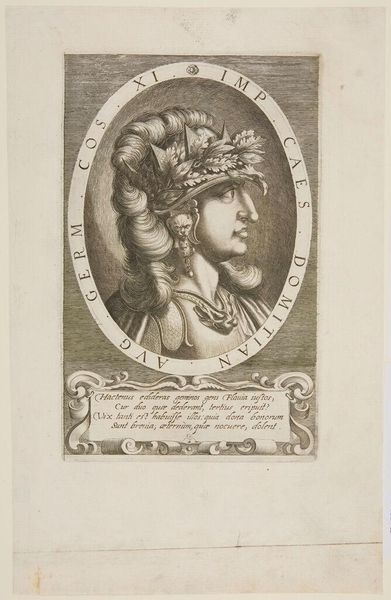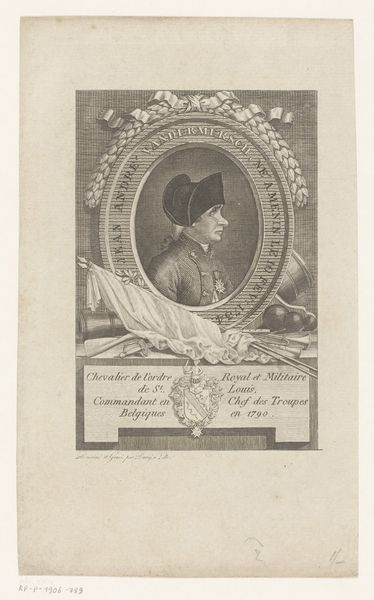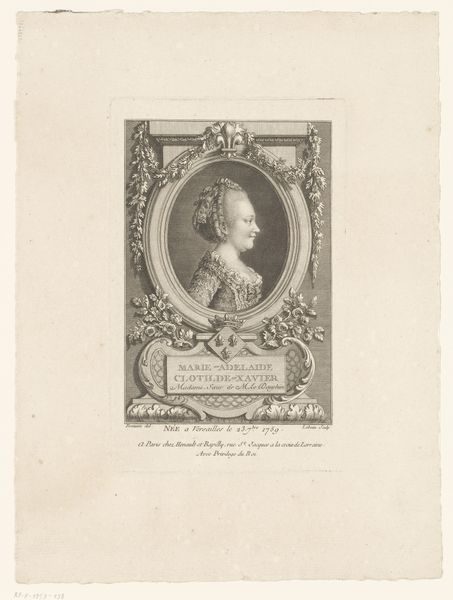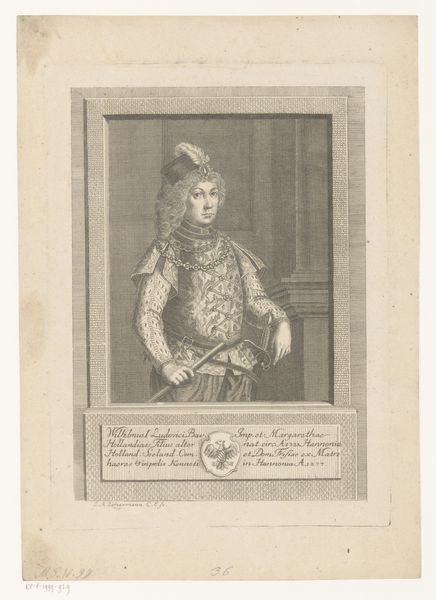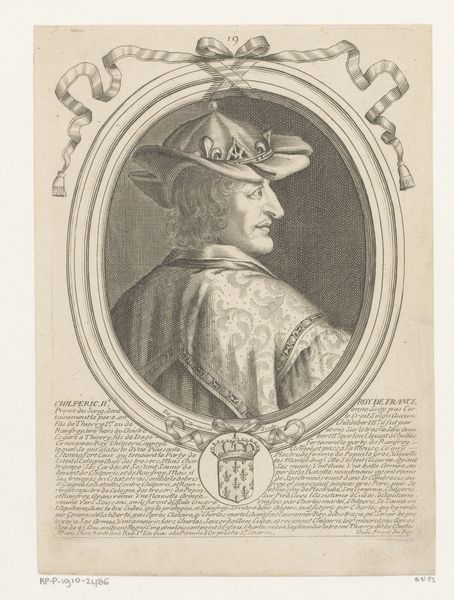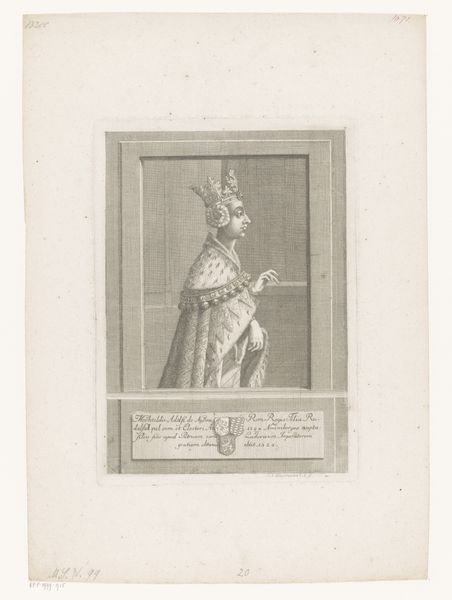
print, engraving
#
portrait
#
medieval
#
narrative-art
#
baroque
# print
#
old engraving style
#
figuration
#
personal sketchbook
#
classicism
#
line
#
history-painting
#
academic-art
#
engraving
Dimensions: height 233 mm, width 167 mm
Copyright: Rijks Museum: Open Domain
This is Nicolas de Larmessin’s portrait of Childerik II, made in the late 17th century. It's an engraving, a printmaking process where lines are incised into a metal plate, which is then inked and pressed onto paper. Look closely and you’ll see the characteristic crisp lines, a testament to the engraver's skill with their burin – a specialized cutting tool. The density of these lines creates tone and texture, bringing the image to life. Engraving was a labor-intensive process, demanding precision and control. It wasn’t just about replicating an image; it was about translating it into a new medium, with its own aesthetic qualities. Printmaking allowed for wider distribution of images, playing a key role in disseminating knowledge and shaping public opinion. The engraver, therefore, was not merely a craftsman but a vital link in the chain of communication, contributing to the burgeoning world of mass media. Here, the process and the social context are intertwined. The meticulousness of the engraving speaks to a culture of craftsmanship, while its reproductive nature hints at the dawn of a more democratized visual world.
Comments
No comments
Be the first to comment and join the conversation on the ultimate creative platform.
